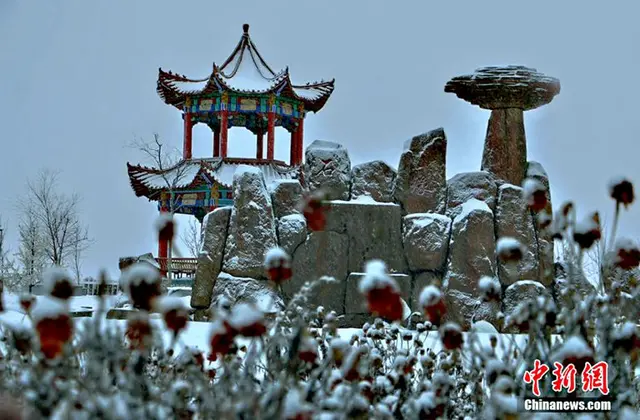When the day is at its shortest and the night at its darkest, the Dongzhi Festival celebrates the winter solstice (December 21/22). While it may no longer be a public holiday, many Chinese still embrace it in the same way they did more than 2,000 years ago.
Back then, the Dongzhi Festival was regarded as a special holiday during which shops were closed for the day and people didn't have to work. It is also one of winter’ssix solar termsin the Chinese lunar calendar, along with Lidong, Xiaoxue, Daxue, Xiaohan and Dahan.
However, with growing modernisation, the festival has lost a lot of its significance in Chinese society. These days, it's just a regular working day for most people, but that still doesn't mean they have stopped celebrating it.
Sweet and prosperous balls
The most characteristic aspect of Dongzhi is the tradition of eating glutinous rice balls known astang yuan, which literally means 'family reunion'.
Dong zhi is the traditional festival in China celebrated on December every It is also known.
These glutinous white or sometimes coloured balls are made out of rice flour and can either be eaten plain or filled with flavours such as red bean paste or sesame. Served in a hot sweetened soup, tang yuan is not only a trademark of Dongzhi but is also enjoyed throughout the year, especially during winter.
The roundness of the balls symbolises unity and prosperity, which is ideal on the gloomiest day of the year. Those who really fancy auspicious symbolism even throw in a few red balls to secure their luck for the bright times ahead, since red is regarded as a sign of happiness and good fortune in Chinese society.
In keeping up with the old traditions, Dongzhi still sees many Chinese commemorating their ancestors by performing rituals and offering sacrifices, for example in the form ofhell money—an offering that many Chinese people burn so that the deceased can have money in the afterlife.
There is also a Taiwanese tradition of sticking tang yuan on flat surfaces around the house or on the back of the door in order to keep evil spirits away from children.
One year older
Dongzhi is the last festival of the year, occurring only six weeks before theChinese New Year. However, some believe that Dongzhi is a turning point for all people; the day everybody becomes one year older.
There is some logic behind this belief. As we embark on the darkest day of the year, we know that times will only get brighter from then on, slowly pulling us out from hibernation with increasing daylight.
When conformed to the theory ofyin and yang, this becomes even clearer. Up until this day, the cold and negative yin energy has been creeping up on us, but as it reaches its climax on the winter solstice, it starts paving the way for the positive yang energy.
Despite being an obviously less significant day than it used to be, Dongzhi is still a great example of ancient Chinese traditions that have lived on and are being acknowledged even today. Its laid-back atmosphere could easily be seen as being more preferable by fretful Westerners during theChristmas holiday.
(gbtimes)
 简体中文
简体中文

